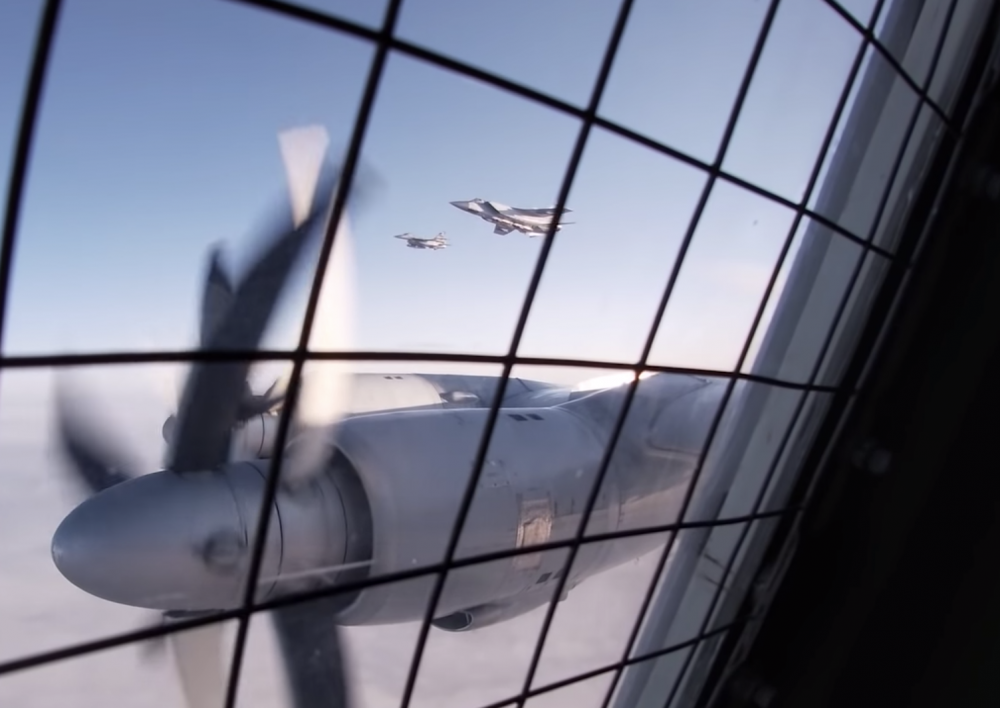A new Russian video shows a close military aircraft encounter in the Arctic
Footage from the Russian military aircraft shows F-16s and F-35s from Norway.
A video posted by Russia’s Ministry of Defense shows a pair of Norwegian Air Force F-16s and F-35s that last Saturday were scrambled to follow the Tu-142 and MiG-31 off the coast of Norway. British Typhoon fighter jets can been seen in the video as the planes were in the skies further south over the North Sea.
As reported by the Barents Observer this weekend, the encounter marks the first time Norway’s new F-35 from Ørland air base were scrambled by NATO to meet Russian military aircraft approaching from the north.
The maritime reconnaissance and anti-submarine warfare aircraft from Russia’s Northern Fleet were flying much further south into the GIUK gap (Greenland-Iceland-UK) than normal. GIUK gap forms a naval choke point in the North Atlantic, and would be critical for the Russian Navy in the event of a conflict.
At least three such flights have been conducted by the Russian Tu-142 planes over the last two weeks. On February 26 and 27, and now on March 7.

The Russian Northern Fleet’s Tu-142 anti-submarine aircraft is a maritime patrol version of the Tu-95 strategic bombers. The main aim of the planes is to hunt NATO submarines and electronic intelligence.
Saturday’s flight with the Tu-142, that lasted for more than 13 hours, was followed by a MiG-31 for part of the distance.
- The MiG-31 and a Norwegian F-16 from Bodø air base can be seen at 0:56 into the film.
- The F-35s can be seen in two sequences, first at 0:38 and again at 1:32.
- The film also shows the Tu-142 preparing for mid-air refueling from a Il-76 tanker.
- At 0.43, a British Typhoon fighter jet flies beneath the Russian plane.
It is not known how many NATO submarines that currently are sailing the North-Atlantic, but navy ships from several NATO members are currently in Norway, bringing in supplies to the multinational exercise Cold Response.
Additionally, two U.S. submarines are operating near the North Pole as part of the U.S. Navy’s biennial ICEX 2020 exercise.